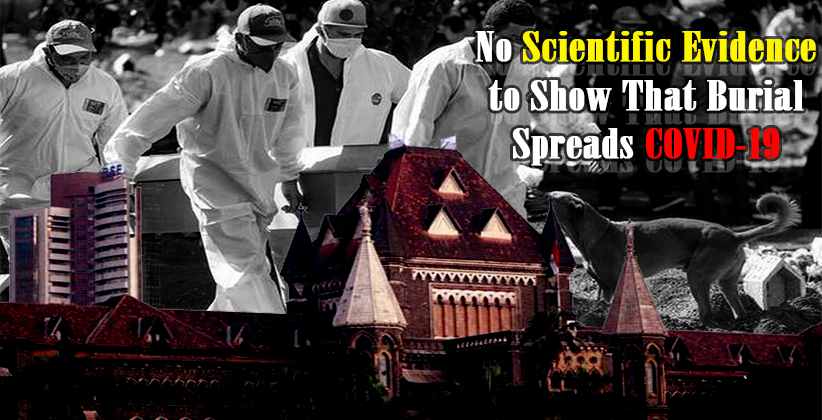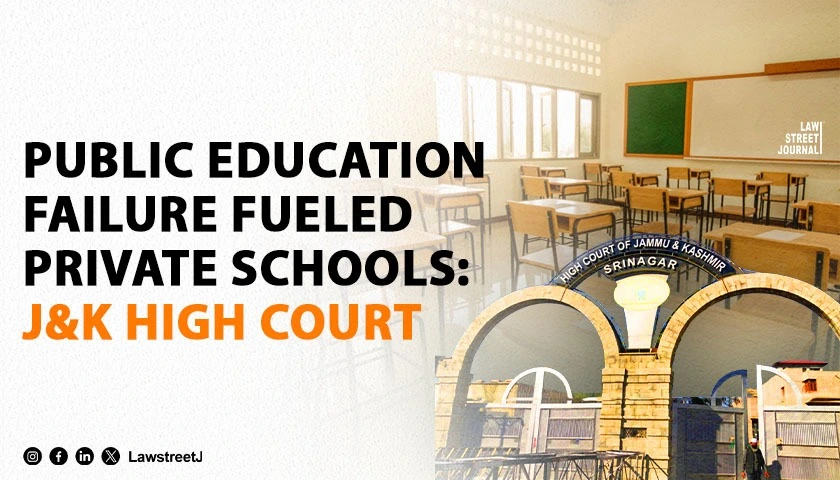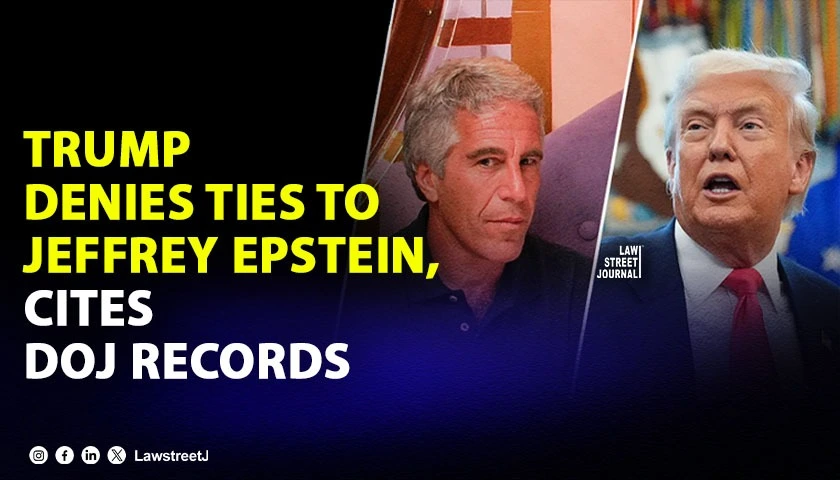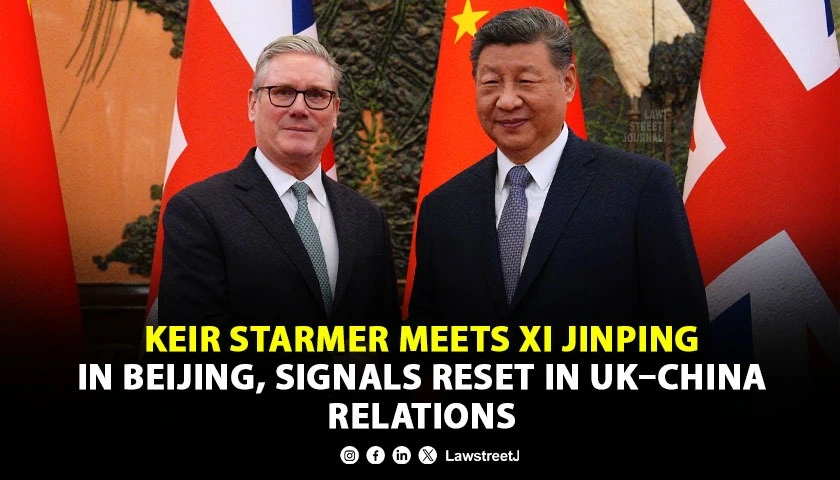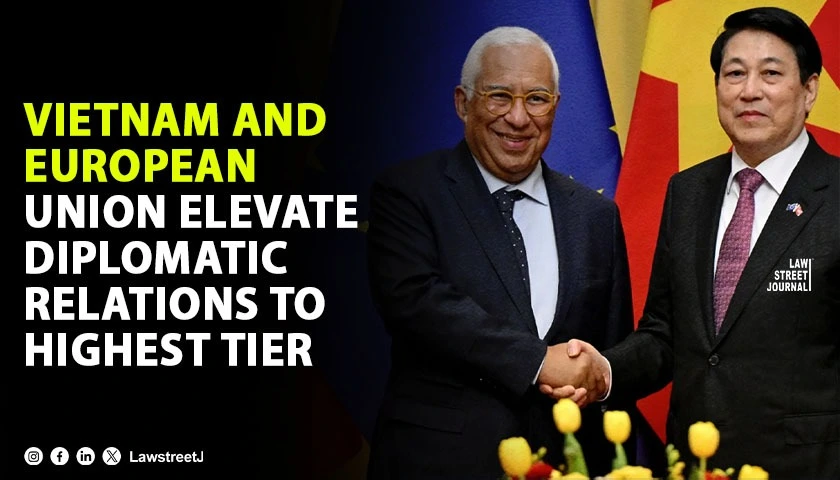A PIL was recently filed on the fear that COVID-19 may spread through the buried bodies, but in dismissing the plea, the Bombay High Court had on May 23, 2020 held that there was no scientific proof to show that COVID-19 can spread through dead bodies.
Judgment to this effect was given by the Bench of Chief Justice Dipankar Datta and SS Shine in the matter of Pradeep Gandhy & Ors. v. State of Maharashtra & Ors.
Background of the PIL:
The petitioners had filed the PIL on April 13, 2020, as the notification by the Municipal Commissioner of the Municipal Corporation for Greater Mumbai was containing several Kabrasthans for the burial of COVID-19 patients, out of which three were in the area close to the Petitioners' residences in Bandra (West). A single judge of the Bombay HC had declined interim relief on April 27, 2020 and the same was appealed before the SC by Special Leave Petition.
On May 4, 2020 while disposing of SLP, the SC directed the Bombay HC to dispose of the petition within two weeks. Relying on Article 21 they prayed that their rights should also (in addition to the right to religion) be protected in trying time of COVID-19 by identifying kabrasthans far away from populated localities and not in the cities itself.
The judgment of the Court:
Relying on the contents of the interim guidance dated March 24, 2020 issued by the WHO, the Court held that there is no evidence of persons having developed infection of COVID-19 from exposure to the cadaver of a suspected/confirmed COVID-19 individual. That apart, the recommendations of the WHO are further clear on the point that people who have died because of COVID-19 infection can either be buried or cremated.
Further relying on COVID-19: Guidelines On Dead Body Management issued by Government of India dated March 15, 2020, the Court recognized the fact that transmission of COVID-19 is through droplets and that an increased risk of COVID infection from a dead body to health workers or family members who follow the standard precautions while handling such body is unlikely. It all boils down to the nature of precautions taken while one handles the dead body and also at the time of its burial.
Regarding the notification allowing the burial of dead bodies, the Court held that,
It is indeed a matter of policy whether to close down a place for disposal of the dead. Unless any decision shocks the conscience of the judicial review Court, it ought to stay at a distance.
Relying on Parmanand Katara (Pt) vs. Union of India & Ors., reported in (1995) 3 SCC 248, where it was held that right to dignity and fair treatment under Article 21 of the Constitution is not only available to a living man but also his body after death and the right to a decent burial, commensurate with the dignity of the individual, is recognized as a facet of the right to life guaranteed by Article 21 of the Constitution, the Court held that,
There is, thus, no reason as to why an individual who dies during this period of crisis because of suspected/confirmed COVID-19 infection would not be entitled to the facilities he/she would have otherwise been entitled to but for the crisis. Should the extant guidelines for disposal of the cadaver of an individual infected by COVID-19 be adhered to and the cadaver properly handled and placed in special covers to contain any kind of spread, we find little reason to deprive the dead of the last right, i.e., a decent burial according to his/her religious rites. On the face of there being no evidence, at least at this stage, that COVID-19 infection may spread to living human beings from the cadaver of any suspected/confirmed COVID-19 infected individual, the attempt on the part of the Petitioners in WP-I to question the decision of the Municipal Commissioner to allow burials, without even challenging it, is misconceived and misdirected and does not persuade us to grant any of the reliefs claimed by them.

